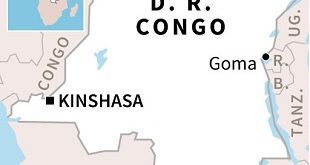
Higher inflation will reign in Christmas spending after a post-Covid splurge last year, but Cameroonians and Zimbabweans will still be extremely generous with Christmas gifts, decorations and food this year, according to an annual report
SPECIAL REPORT | BIRD AGENCY | African households will focus on gifts and decorations as they take a more cautious approach to their Christmas holiday spending this year, on the back of a rising cost of living, according to the Cost of Christmas report.
A new ‘Cost of Christmas’ study by WorldRemit shows Cameroon (US $735 and Zimbabwe( US$ 215) will be the continent’s biggest spenders this season, with bulk of their expenditure going to gifts and decorations.
While Kenyans will spend the most to buy gifts to friends and families at 56% of their monthly household income, Zimbabwe comes second at 41% ,South Africa (38%) and Rwanda (34%)follows in third and fourth positions respectively in this category.
Families in Cameroon (51%) will spend the most of their 30-day salaries on decorations followed by Zimbabwe(37%), Rwanda (34%), South Africa (36%) and Kenya(23%).
According to the study, expenditure on gifts followed by decorations will take the largest share of household monthly income in five countries- Cameroon, Zimbabwe, Rwanda, Kenya and South Africa- out of seven African countries featured in the annual survey. In two other countries – Nigeria and Uganda – the biggest share of Christmas spending will be on food.
Only Ugandan(56%) and Nigerian(52%) families will spend more than half of their monthly income on food this holiday.
“We can see that the cost of gifts is the highest across more than half of the countries,” said WorldRemit in the survey.
Overall, families in Cameroon will spend the largest share – 88% of their monthly income on food, gifts and decorations.
Cameroon households will on average spend up to US$615, against an average monthly income of US$715. Expenditure in that country will rise only marginally, by 0.2%, compared to 2022.
The country’s inflation rate rose to an all-time high of 8.5% in March 2023, from a historical low of 2.3% in 2009, according to the Cameroon National Institute of Statistics. In October, the country’s inflation rate stood at 7.20%.
Higher inflation rates across several other countries in the continent will generally make this year’s Christmas costlier than that of 2022, except in South Africa, where overall expenses are projected to drop.
Nonetheless, overall Christmas spending versus monthly income will be below 50% in most countries, reversing in a trend seen in 2022 when WorldRemit projected holiday expenses in Cameroon, Nigeria, Rwanda, Uganda and Kenya to cost more than 100% of average monthly household income. This signifies caution on the back of rising food and fuel costs.
“WorldRemit (is) predicting more extreme costs this festive season,” the survey reported.
Nigerian households will experience the steepest rise in costs of food, decorations and gifts, to US$218, a 23.71% rise compared to 2022. This cost of is equivalent to 49.5% of Nigeria’s average monthly household income of US$440. Nigeria’s inflation rate was recorded at 25.1% in October.
Zimbabwe, whose inflation reached a high of 314% in 2023, will also experience a double-digit rise in the cost of Christmas, at 19.38%. The International Monetary Fund expects Zimbabwe’s inflation rate to rise to nearly 400% by the end of 2023. The cost of Christmas in Zimbabwe is the equivalent of 42% of the country’s average monthly income of US$601.
Holiday spending in Rwanda (at US$239) is the equivalent of 42% of monthly income (US$567), in Kenya (US $215) it equates to 22% of average monthly income (US$715).
Uganda and South Africa will this year be the lowest holiday spenders of African countries in the survey Inflation in both countries stood at 5.8% in October, according to IMF data.
In Uganda where the average monthly income is US$751, families will spend US$64, a 3.2% rise compared to 2022.
South Africans, with one of the highest average monthly incomes on the continent – at US $1,662 – will marginally cut household Christmas spending by 1.87% to US$166 in 2023.
***
Conrad Onyango, bird story agency
 The Independent Uganda: You get the Truth we Pay the Price
The Independent Uganda: You get the Truth we Pay the Price


